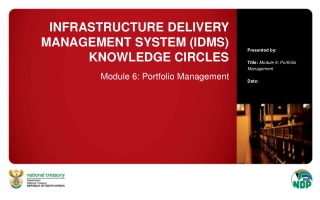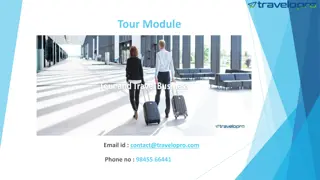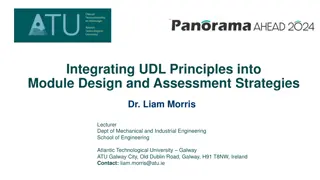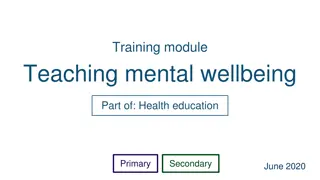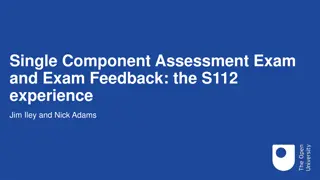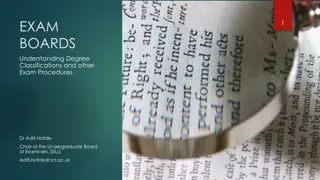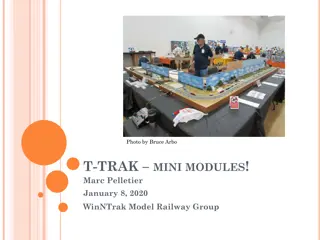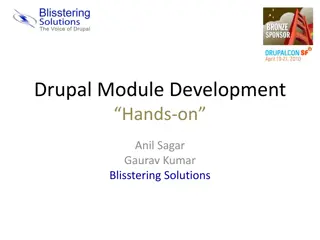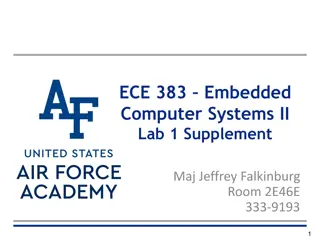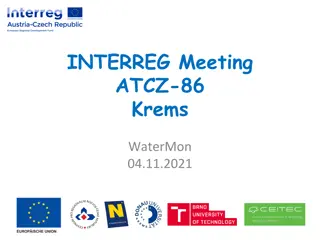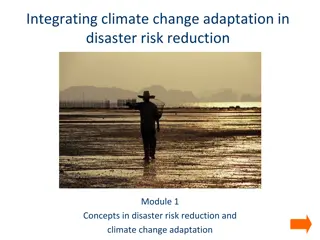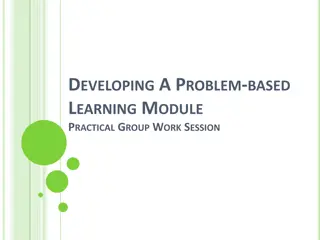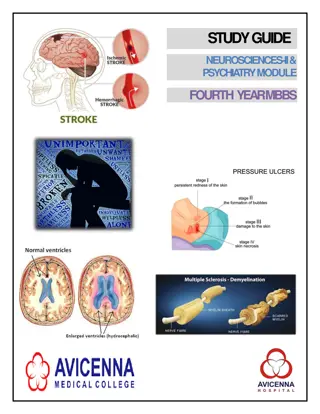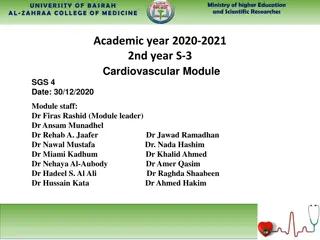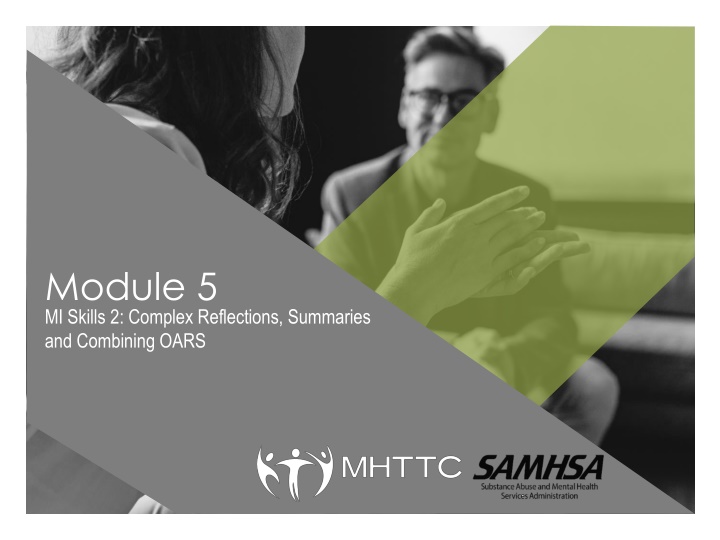
Mastering Motivational Interviewing Skills: Complex Reflections and Summaries
Enhance your motivational interviewing skills by delving into complex reflections, summaries, and combining OARS techniques. Practice with open-ended questions, simple reflections, and affirmations to deepen conversations about change and build relationships effectively.
Download Presentation

Please find below an Image/Link to download the presentation.
The content on the website is provided AS IS for your information and personal use only. It may not be sold, licensed, or shared on other websites without obtaining consent from the author. If you encounter any issues during the download, it is possible that the publisher has removed the file from their server.
You are allowed to download the files provided on this website for personal or commercial use, subject to the condition that they are used lawfully. All files are the property of their respective owners.
The content on the website is provided AS IS for your information and personal use only. It may not be sold, licensed, or shared on other websites without obtaining consent from the author.
E N D
Presentation Transcript
Module 5 MI Skills 2: Complex Reflections, Summaries and Combining OARS
Review Module 4 1. Open ended questions promote a deeper conversation about change. Simple reflections include repetition and rephrasing. Affirmations identify and comment on a person s strengths. They help build confidence, relationships and alliance. Affirmations focus on specific behaviors. OE Questions Reflections Affirmations Summaries 2. 3. 4.
ACTIVITY OARS - Practice Find someone to practice with before the next session: 1. Start the conversation with an open ended question. Keep the conversation moving by using simple reflections and affirmations. Use at least 2 open ended questions, 3-4 reflections, and 1 affirmation. Remember to use questions sparingly. 2. After your discussion, ask the person you practiced with to give you some feedback on how they felt during the exchange. Note their response. 3. Briefly note how you felt using these three skills of open ended questions, affirmations, and simple reflections? 4. Bring your notes to the next session to discuss.
ACTIVITY OARS - Practice Volunteers Needed to Share Experiences: 1. 2. 3. 4. What was your overall experience practicing the skills? How did you feel during the conversation? What were some of the challenges? How did the person you were meeting with respond?
Module Objectives 2 3 1 4 Differentiate between types of complex reflections Use complex reflections in a real play Describe various types of summaries Demonstrate the use of the combined OARS skills
Simple Reflections Complex Reflections
Types of Complex Reflections Content reflections Feeling reflections Meaning reflections Double-sided reflections Amplified reflections
Reflecting - Content Reflecting back what has been shared in your own words. Conveys you are listening, clarifies your understanding. Encourages the person to continue speaking. Reflects only content, not feeling or meaning!
Reflecting - Content Provide a content reflection for each statement below: I just don t understand my mom. One minute she tells me to live close to home and the next she says live wherever you want. I really want to start applying for jobs, but there are so many things I need to do to get my resume ready. I ve been thinking about attending a support group, so I looked up some that are available in my neighborhood.
Reflecting - Feeling Conveys a deeper understanding, including the emotional component, body language and tone of voice. Identify the emotion, then test by sharing a feeling reflection such as, You feel .. . Gauge intensity of feeling. Feeling reflections focuses on emotions felt.
Reflecting - Feeling Provide a feeling reflection for each statement below: I ve been waiting for over a year to enroll in college and I can t wait! I can t do anything right as far as my teachers are concerned. They return my assignments because they say they re sloppy and incomplete. Some co-workers invited me to a party this weekend, but I don t know if I should mix work and fun.
Reflecting - Meaning A guess as to meaning and how it connects to their feelings. You feel ____(feeling word) because _____(rephrasing content).
Reflecting - Meaning Provide a meaning reflection for each statement below: My mom has been taking me to my job this past month but now she says she doesn t have the time to drop me off every morning. I went to visit my sister today in the hospital. We had a great visit. When I went to give her a hug goodbye, she looked in my eyes and started smiling, then crying. I think my stopping by made her happy. Work has been extremely hectic this week. I don t think I ll ever be able to catch up.
Reflecting Double Sided Captures and highlights both sides of a person s ambivalence about change. Demonstrates that you understand their ambivalence. Double-bind: the person sees both pros and cons of changing and not changing. Use and , not but . On one hand _____and on the other hand _____.
Reflecting Double Sided Provide a double-sided reflection for each statement below: I really need a job to pay off my student loans before I get too far behind, but I know I ll just end up quitting or getting fired like all of my past jobs. I m really looking forward to retiring next year. I have some things lined up like a little traveling and watching my grandson, but what else am I going to do all day? I m not sure I can quit drinking and still settle down and relax in the evenings after a long day. I just feel so bad now every morning after I drink.
Reflecting Amplified Encourages re-evaluation of what was overstated, encourages one to argue for the opposite. Intentionally reflects what was said in an exaggerated manner. Can be used to over or under emphasize a point. Helps one see the other side of a statement. My doctor says I need to go on a diet, but what does he know?
Reflecting Amplified Provide an amplified reflection for each statement below: My parents keep getting on me to go back to school and finish my degree, but I m not going to do it just because they say so. I can t help thinking that once I get married my life will finally be perfect. I can t quit drinking. This is what my friends and I do together. I ll be left out if I don t go to bars with them.
https://www.youtube.com/watch?v=TbDG9W_iNTk&list=PL1UDVLmMXEEdIVofbgt4d6sLAe5pulbPChttps://www.youtube.com/watch?v=TbDG9W_iNTk&list=PL1UDVLmMXEEdIVofbgt4d6sLAe5pulbPC
ACTIVITY Reflections in Combination In pairs: 1. 2. 3. Think about what you would like your life to look like 5 years from now. Identify the speaker and listener. The listener will ask open ended questions and provide reflections on the topic of what the speaker wants their life to look like in 5 years. The listener may need to use open ended questions, simple reflections, and affirmations before offering complex reflections. Try to incorporate as many of the types of complex reflections as possible. After 4-5 complex reflections, switch. 4. 5. 6.
Summaries Pulls together several pieces of conversation Highlights important elements of a discussion Encourages steady and deepening discussion Can be used to begin the conversation or periodically throughout the exchange Excellent for transitions
Summary - Collecting Used to collect related information and reflect it back. Can be used to keep the discussion going. Let me make sure I m understanding what you ve shared so far. You re interested in moving into an apartment by yourself, because you ve been having difficulties getting along with your roommates and you re also concerned about feeling lonely if you live alone.
Summary - Linking Used to connect or pull together pieces the person has shared at different times. Great for making connections. As I hear you talking today about being afraid to get back into the workforce, I remember when we first met and you expressed your fear about starting the training program you just completed.
Summary - Transitional Brings what has happened so far and transitions to a new task or direction. Before we wrap-up our discussion for today, let me summarize what I ve heard so far, and you can let me know if I ve missed anything. You haven t been feeling well physically and this scares you because several members of your family have had serious health conditions. You think it might be time to see a doctor and that s scary for you.
Summary Double Sided Reflections Can work in situations where the person is expressing ambivalence.
Begin by stating you are making a summary. If the person is feeling ambivalent speak both sides of the uncertainty in the summary like in a double-sided reflection. Highlight any change talk. Invite the person to correct errors in your understanding or anything you missed. Use open ended questions.
https://youtu.be/TBwxopZzec4?list=PL1UDVLmMXEEdIVofbgt4d6sLAe5pulbPChttps://youtu.be/TBwxopZzec4?list=PL1UDVLmMXEEdIVofbgt4d6sLAe5pulbPC
https://youtu.be/9sbajibgrsg?list=PL1UDVLmMXEEdIVofbgt4d6sLAe5pulbPChttps://youtu.be/9sbajibgrsg?list=PL1UDVLmMXEEdIVofbgt4d6sLAe5pulbPC
ACTIVITY Putting It All Together In pairs: 1. Pick a change you have ambivalence about. Pick something you are comfortable in sharing! Identify who will begin as the listener. The listener: Ask an open ended question to get the conversation started. Respond to the speaker using all 4 OARS skills, ending with a summary. The listener can only use OARS skills in their responses. After the listener has used all OARS skills, switch roles and repeat. 2. 3. 4.
ACTIVITY Putting It All Together - Continued 1. Identify one person to practice using open ended questions, affirmations, simple and complex reflections, and summaries. 2. Start out with an open ended question. Keep the conversation moving by using reflections and affirmations. Use at least 2 open ended questions, 4-5 simple and complex reflections. 3. Use at least 1 affirmation, 1 collecting or linking summary, and 1 transitional summary. 4. Note how you felt using the OARS skills. 5. Bring your reflection to next session and be ready to discuss.
SUMMARY Module 5 1. Complex reflections address connections that are below the surface Summaries pull together pieces of important information and show how they fit together Practice, practice, practice putting it all together Quality of communication will improve Complex Reflections Summaries Connection Practice! 2. 3. 4.


